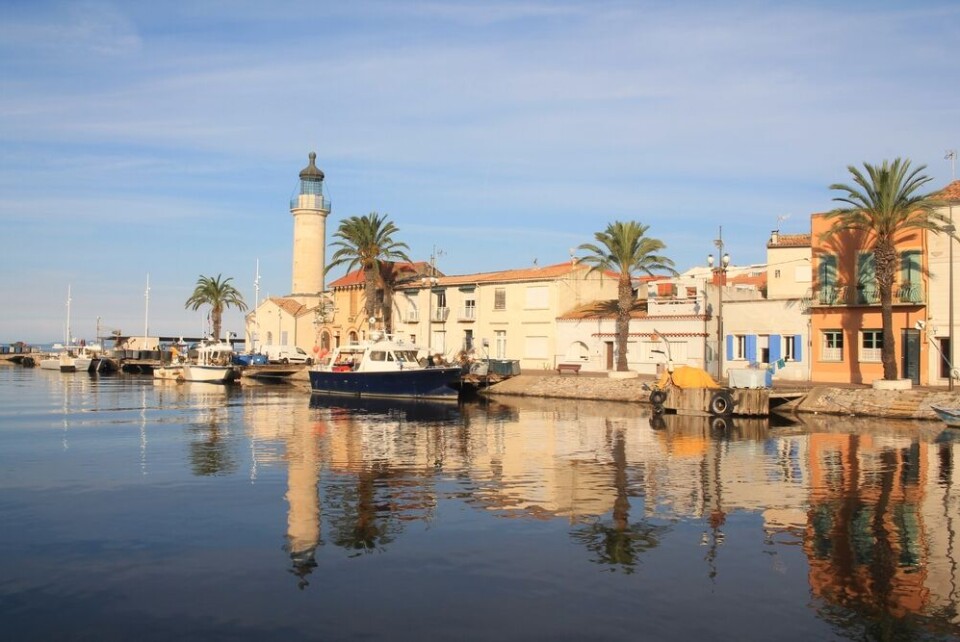-
Police across France hunt abandoned cars to free up spaces in urban areas
Vehicles cannot be parked on a public road in the same place for more than seven days
-
Senators examine proposal to guarantee access to cash machines in rural areas of France
Some 18.6% of French communes had access to at least one local ATM in 2024
-
French weekly weather forecast February 9-13: Unsettled with winds of up to 100km/h
Flood risk may increase in several regions and mountain conditions set to worsen
Millions of phones to get tsunami alert in south of France
The exercise will let authorities see if the emergency text message system works

Nine departments on the Mediterranean coast are preparing for a simulated tsunami exercise that will let authorities test their text message alert system and see how well people react to it.
The exercise will take place between 10:00 and 10:30 on Friday, January 19 in all nine of the departments on the Mediterranean coast: Alpes-Maritimes, Var, Bouches-du-Rhône, Gard, Hérault, Aude, Pyrénées-Orientales, Haute-Corse and Corse-du-Sud.
Only communes on the seafront are involved.
People in the test areas are not expected to do anything other than receive the text message and complete a questionnaire.
No warning sirens will sound unlike in a real emergency.
The main purpose of the exercise is to let authorities see if the Fr-Alert text message system works as intended, and if people read the messages.
The system, set up in 2022, is designed to warn people of imminent dangers. It can make mobile phones ring even if their owners have put them on silent mode.
Read more: Will France’s FR-Alert warning system work with foreign phones?
The authorities also hope the exercise will raise awareness about the potential danger of tsunamis and encourage people to think about how to react in emergencies.
#Tsunami24 | Vendredi 19 janvier, #EXERCICE #Tsunami sur les départements du littoral méditerranéen ➡ Un message #𝐅𝐑𝐀𝐥𝐞𝐫𝐭 sera envoyé sur les portables des personnes proches du littoral.
— Préfet du Var (@Prefet83) January 15, 2024
❌AUCUNE ACTION N'EST REQUISE.
➕ d'infos sur l'exercice 👉https://t.co/dJUy0SNGbV pic.twitter.com/aQTJ1GXG48
What will happen in the tsunami exercise?
People in communes on the seafront will receive two emergency text messages starting at 10:00 on Friday, January 19 via FR-alert.
The first message will inform them of the alert and include a link for people to confirm that they have received it.
The second message will include a link to a questionnaire about the experience.
The authorities will then analyse this data.
In Le Grau-du-Roi (Gard), students from the university of Avignon will observe people’s reactions to the text messages.
The exercise was originally scheduled for November 3, 2023, but was called off due to bad weather.
A similar exercise, albeit on a smaller scale, went ahead in Frontignan (Hérault) on October 13.
Read more: Tsunami simulation exercise to take place in south of France
Could a real tsunami happen in France?
Authorities believe that tsunamis represent a real, albeit by no means imminent, danger to French coasts.
According to a Unesco report from 2022, there is “almost a 100% chance of a one metre high tsunami wave in the Mediterranean within the next 30 years.”
Indeed, the risk posed by seismic activity was brought home on June 16, 2023 as a magnitude 5 earthquake struck Niort in western France.
Read more: Strong aftershock in western France after magnitude 5 earthquake
The risk is much higher in France’s overseas departments such as Réunion, which was struck by a cataclysmic tsunami on December 26, 2004.
In Réunion it only resulted in material damage. However the same tsunami caused over 200,000 deaths in Indonesia and Thailand.
Related articles:
MAP: 4,000 earthquakes a year in France; where, and what risk level?
Earthquake in western France: witnesses invited to file reports
























